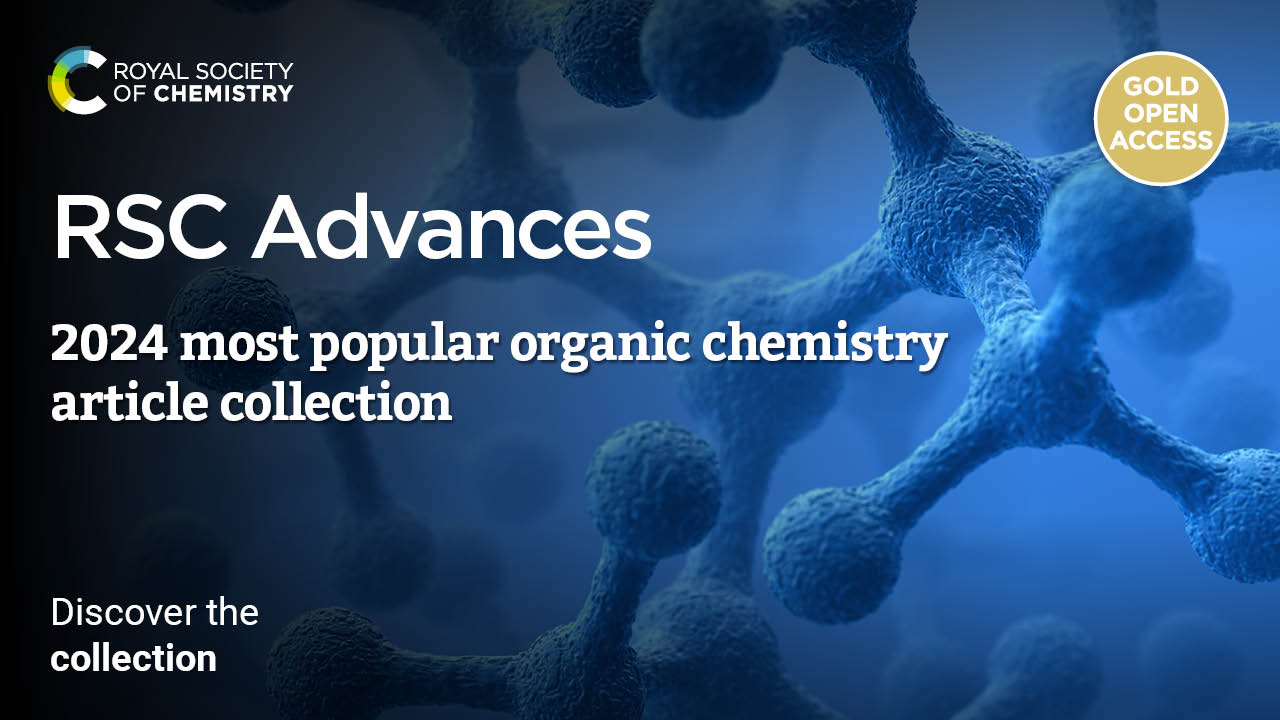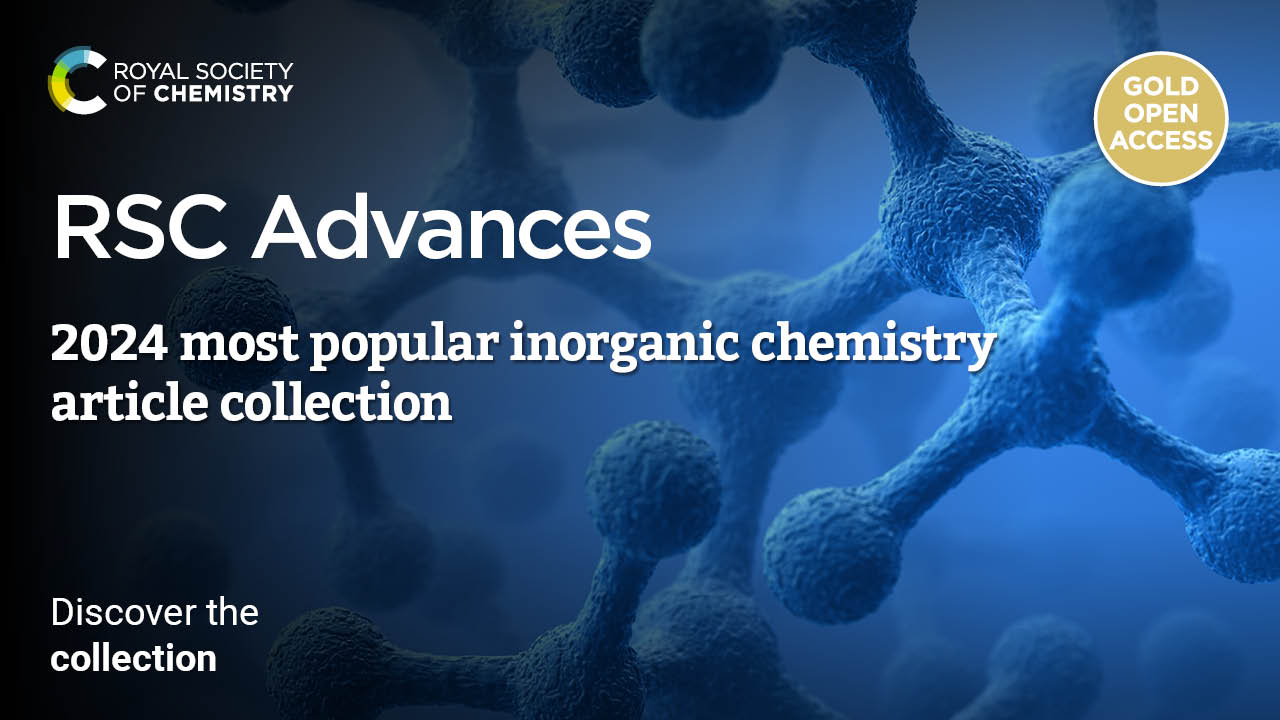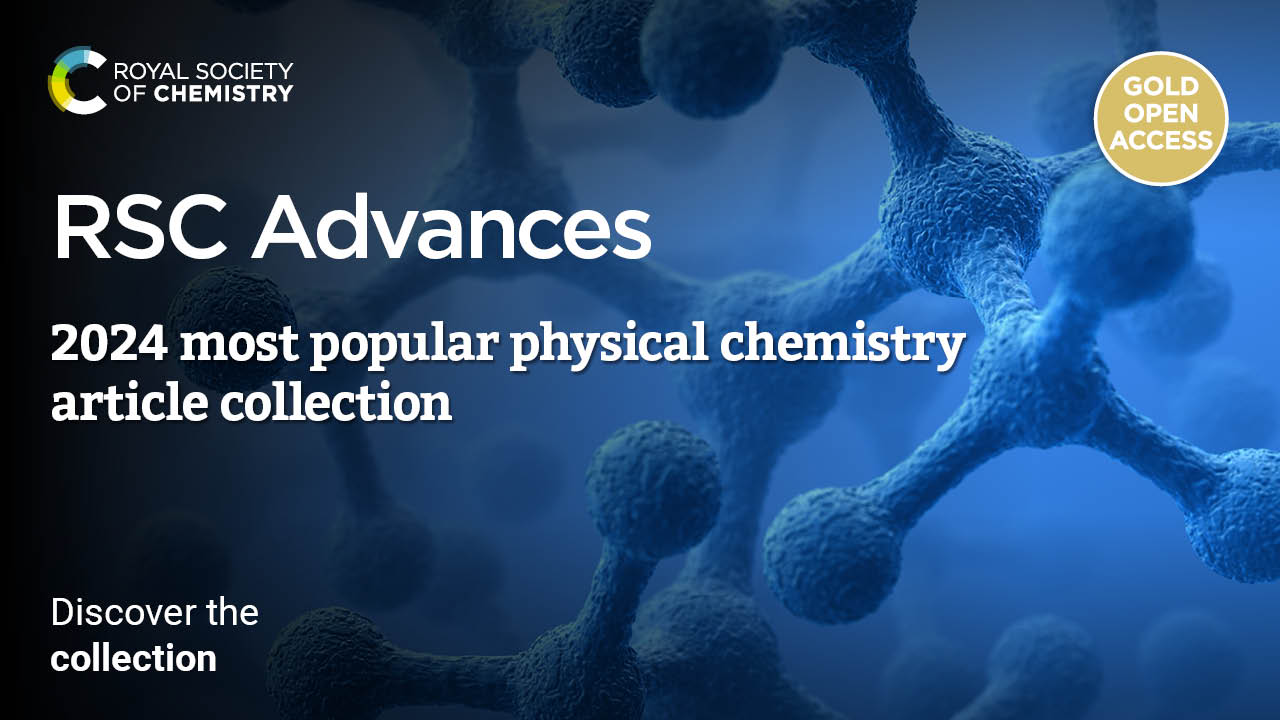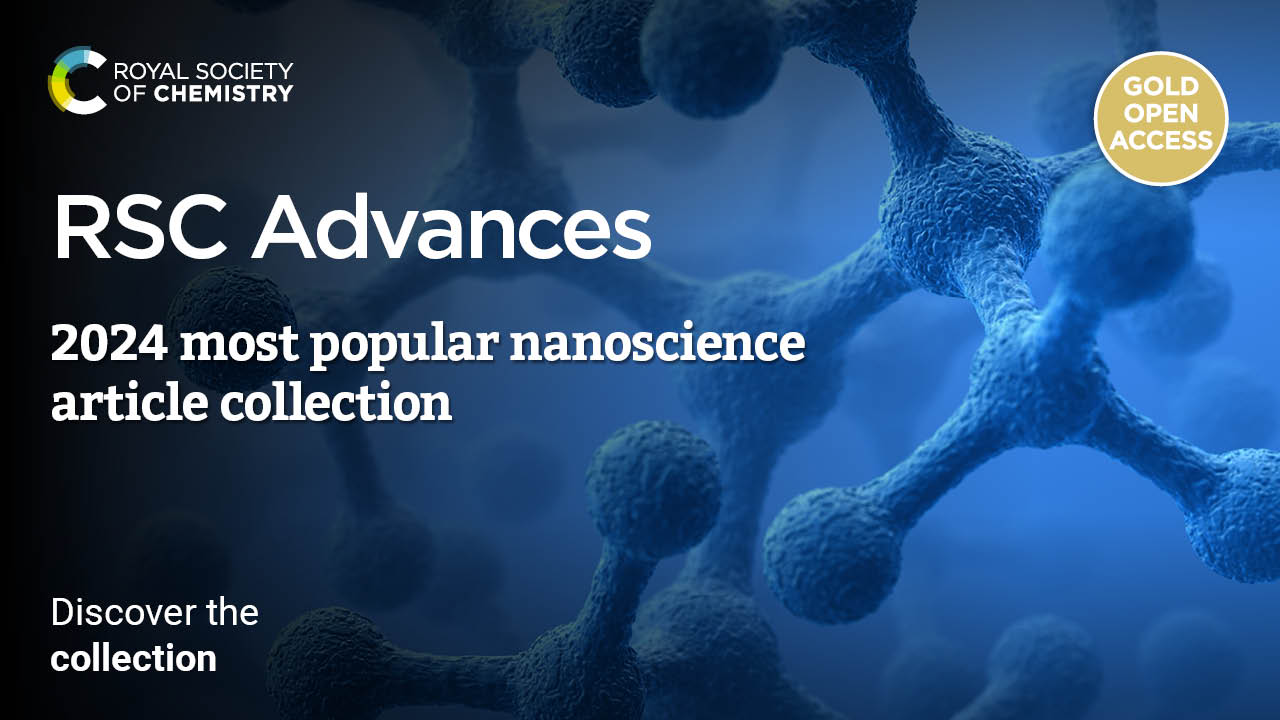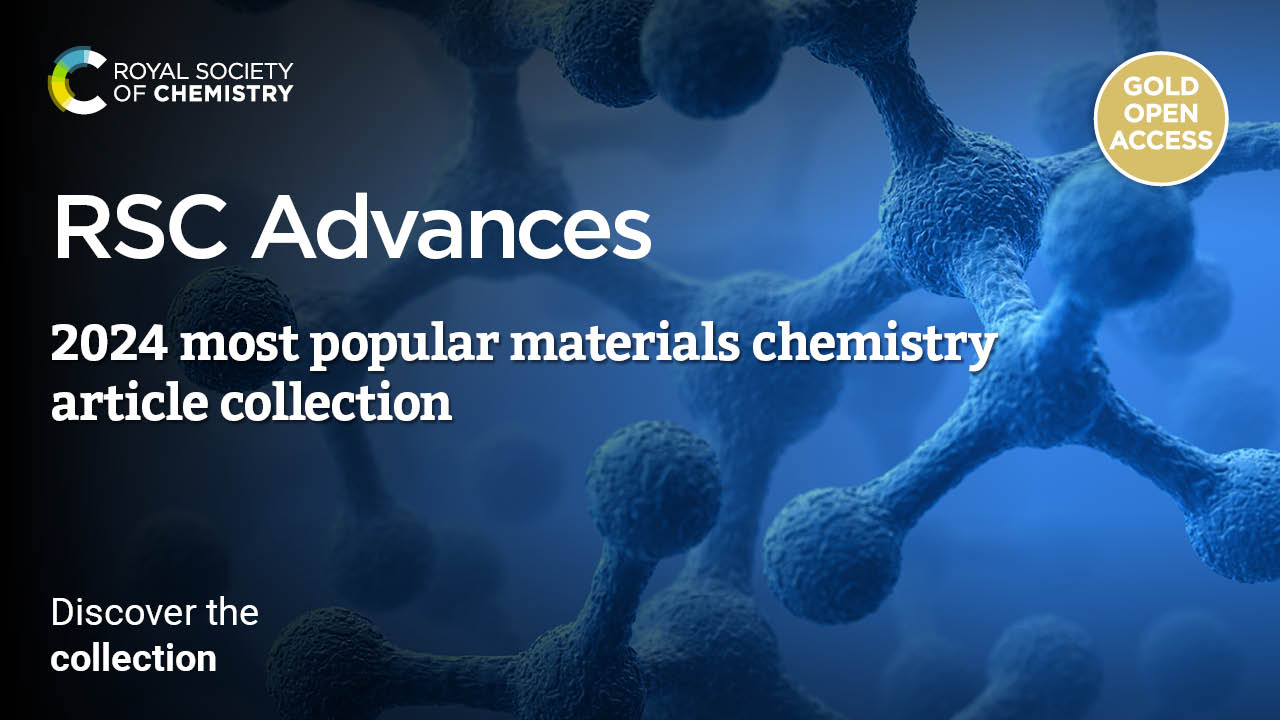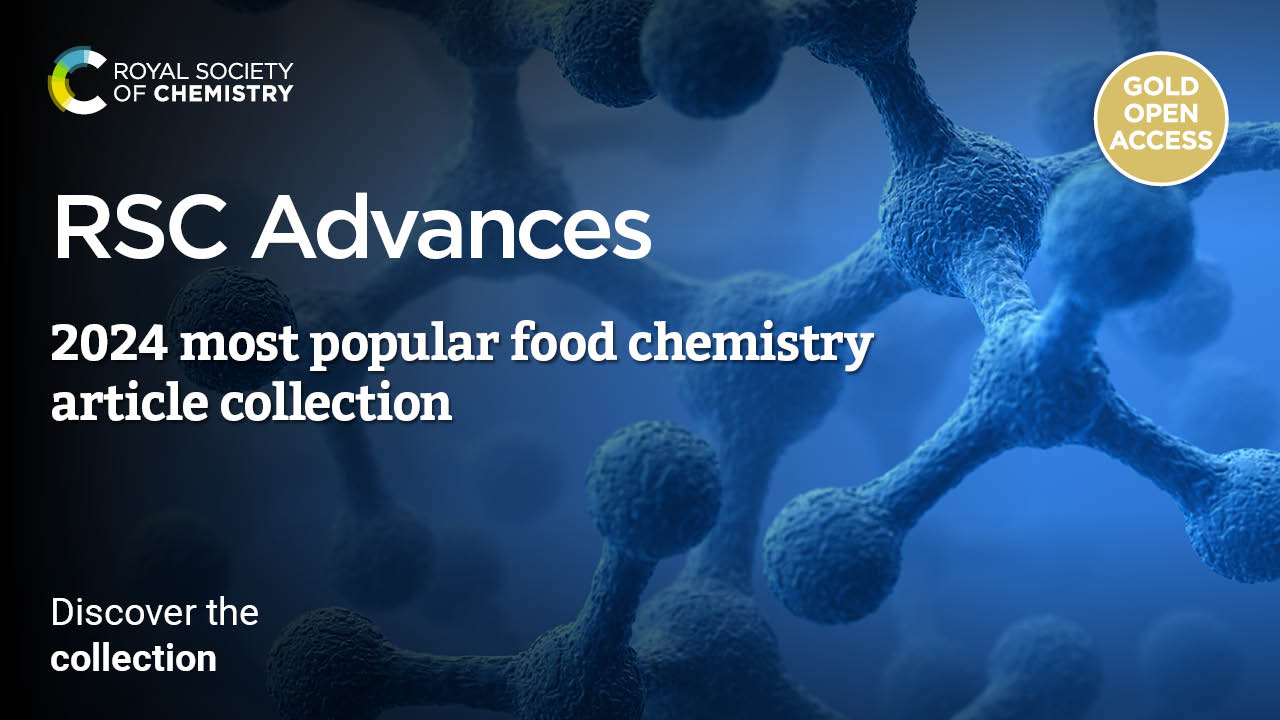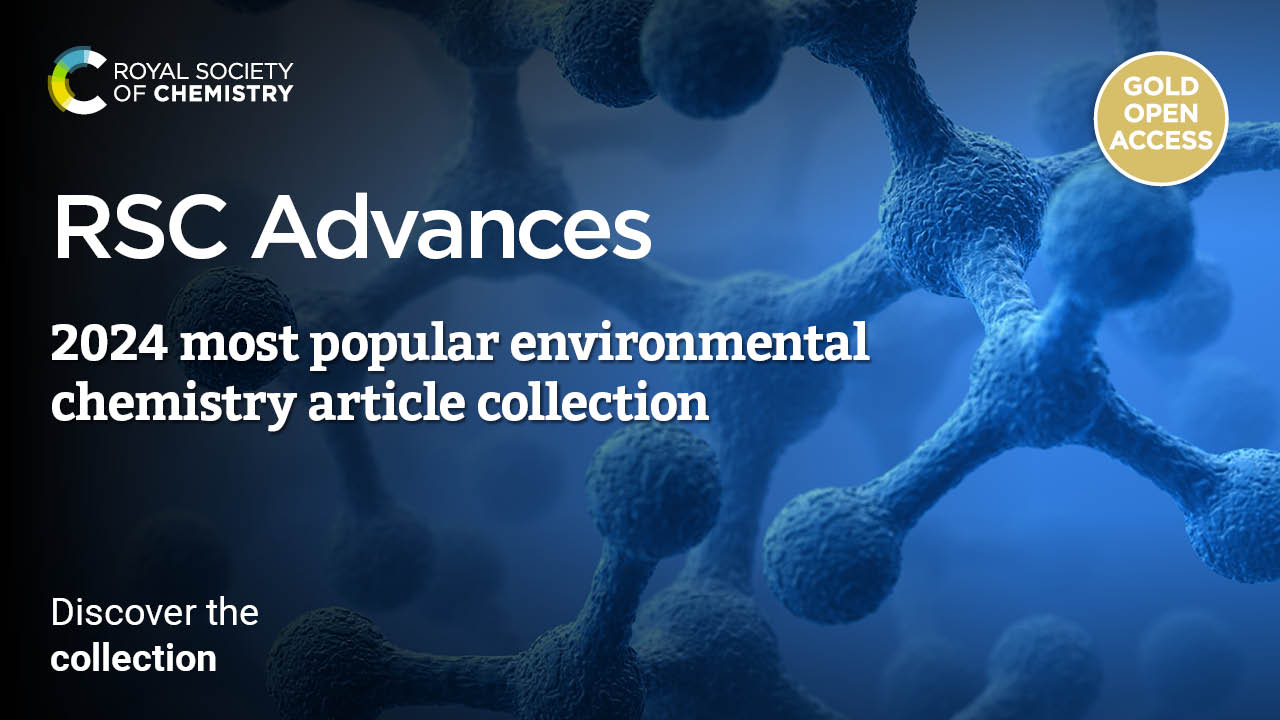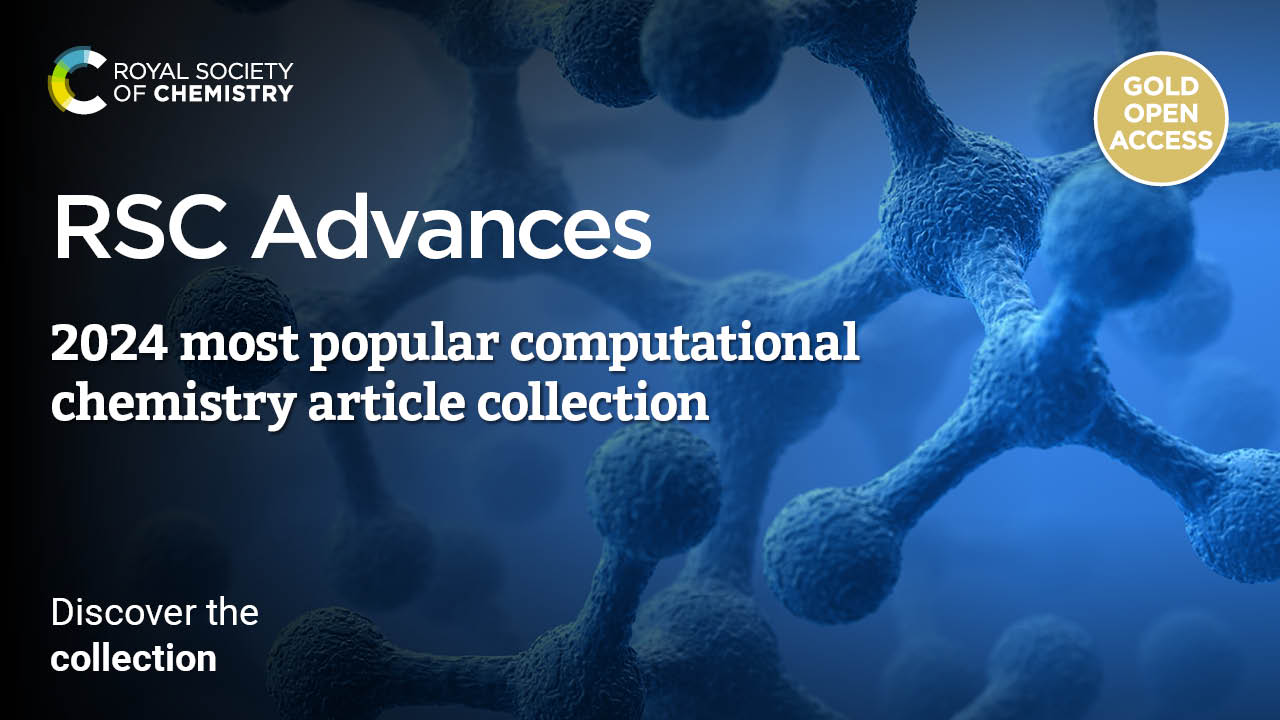Welcome to January’s Review round up!
Every month we update our 2025 Reviews in RSC Advances collection to showcase all of the review articles published in RSC Advances in 2025. Don’t forget to come back next month to check out more 2025 reviews.
We hope you enjoy reading and as always, all of our articles are open access so you can easily share your favourites online and with your colleagues.
Browse a selection of our January reviews below:
3D-printed silicon nitride ceramic implants for clinical applications: the state of the art and prospects
Peng Zhang and Rujie He
RSC Adv., 2025, 15, 406-419
Metal compounds as antimicrobial agents: ‘smart’ approaches for discovering new effective treatments
Valentina Vitali, Stefano Zineddu and Luigi Messori
RSC Adv., 2025, 15, 748-753
Multicomponent reactions (MCRs) yielding medicinally relevant rings: a recent update and chemical space analysis of the scaffolds
Mukesh Tandi, Vaibhav Sharma, Balasubramanian Gopal and Sandeep Sundriyal
RSC Adv., 2025, 15, 1447-1489
Exploring sesquiterpene lactones: structural diversity and antiviral therapeutic insights
Yhiya Amen, Gehad Abdelwahab, Ahmed A. Heraiz, Mahmoud Sallam and Ahmed Othman
RSC Adv., 2025, 15, 1970-1988
A review on arsenic contamination in drinking water: sources, health impacts, and remediation approaches
Bashdar Abuzed Sadee, Salih M. S. Zebari, Yaseen Galali and Mahmood Fadhil Saleem
RSC Adv., 2025, 15, 2684-2703
Submit to RSC Advances today! Check out our author guidelines for information on our article types or find out more about the advantages of publishing in a Royal Society of Chemistry journal.
Keep up to date with our latest Popular Advances, Reviews, Collections & more by following us on X. You can also keep informed by signing up to our E-Alerts.













